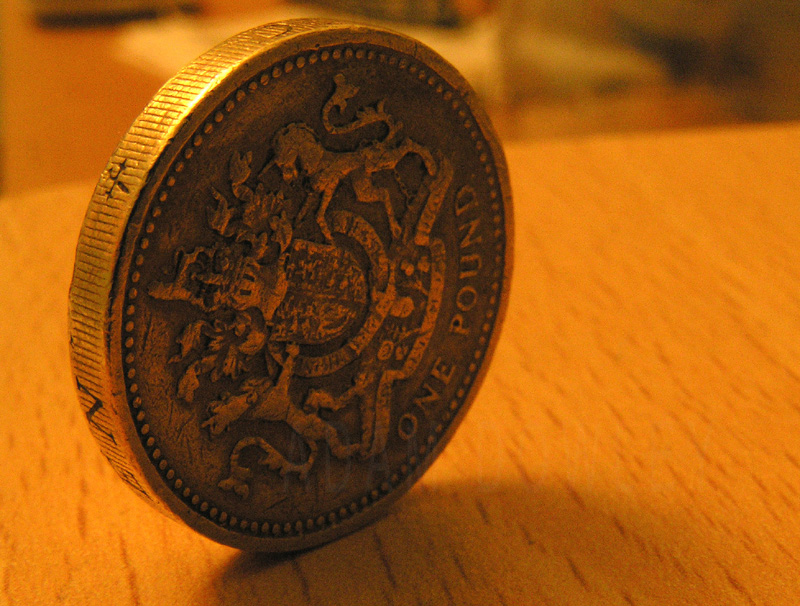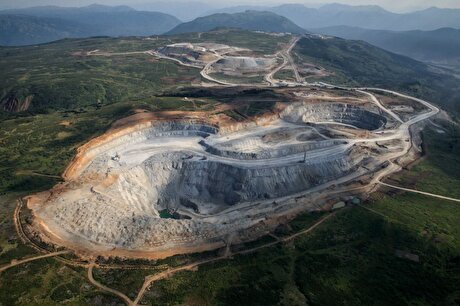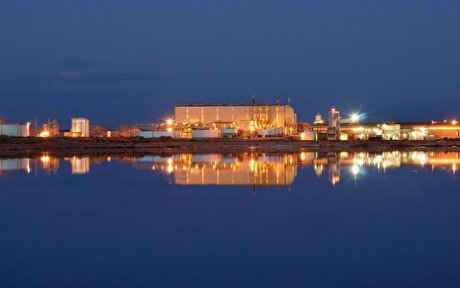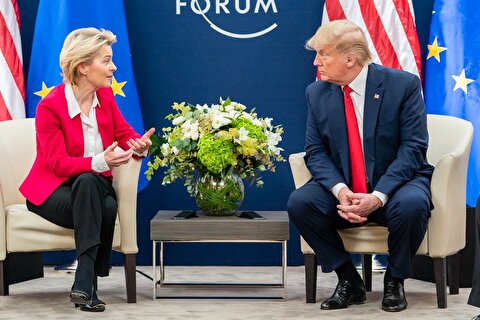
Limited Impact of Brexit Vote on Tehran Markets

The pound, which on Friday plummeted to a 30-year low, setting a record intraday swing of more than 10% between its high and low pints, lost significantly against the rial on Saturday before gaining some ground.
The British currency, which normally sold for 50,000 rials in Tehran’s open market, lost 2000 rials in Ferdowsi St., selling for 47,000-48,000 rials. The Central Bank of Iran’s official rate for the pound lost about 3,350 rials and was fixed at 41,960 rials. The CBI had fixed the rate at 45,400 rials to the pound before the results of the Brexit vote was announced.
Azadi gold bullion gained as much as 310,000 rials in late-day trading, surging to a two-year high. The benchmark coin changed hands at 10,580,000 rials on the first day of the Iranian trading week. The domestic rally came after gold soared as much as 8% to its highest in more than two years on Friday in global markets as the shock vote sent investors scurrying for protection in bullion and other safe haven assets.
The pound later managed to recover back to 49,500 rials as uncertainty about markets grew and Mark Carney, governor of the Bank of England, went out of his way to soothe market fears, saying the bank has more than £250 billion worth of funds it can make available to markets, should they need arise.
A forex trader in Central Tehran said traders will have to wait until Monday when global markets reopen to see the true extent of the pound taking a Brexit beating in its parity rate with the rial.
The euro also lost about 1% and was traded for 39,000 rials. The US dollar was slightly up at 34,800 rials.
Grave Consequences
As for the ramifications of the UK’s not unexpected departure from the EU, the effects are said to be enormous and far-reaching for both Britain and its European neighbors, with grave consequences for both sides.
However, could or should the seismic shift mean anything for Iran, a country apparently safe from such events taking place thousands of miles away?
For one thing, the volume of trade between the UK and Iran is not much. Iran’s exports to the UK mainly include oil and gas while some industrial goods are imported. On the other hand Iran has in recent decades enjoyed warmer relations with the founding members of the 28-nation bloc, namely Germany, France and Italy.
“ I don’t see much change coming for Iran with Britain no longer in the EU simply because our commercial ties with the Brits are limited,” said Mohammad Reza Meskarian, the CEO of the London-based Persia International Bank whose bank has struggled to win approval from UK banks after sanctions were lifted in January.
“However, I believe that the EU, without Britain would be more independent in its decision making and this would allow them to open up with us faster,” he said in a phone interview.
Ripple Effect
As Meskarian says, it is likely that other EU members such as France and the Netherlands could follow suit in exiting the EU, something that would be devastating for the union.
“However, if the negative effects of Brexit on the UK economy would be vast, which is not highly likely, it could be that the British banks, which have so far largely kept aloof, would warm up to Iran.”
Pouya Jabal Ameli of the Central Bank of Iran agrees that the effect of Brexit on Iran would be limited to swings in the currency and gold markets, which he says are in fact global.
Amir Houshang Amini, vice president & secretary general of the Iran- British Chamber of Commerce, is of the opinion that Brexit is in fact a good thing from Iran’s perspective.
“Although this could be detrimental to the UK and the EU, it is not necessarily a bad thing for us as we can use it to expand ties with Britain,” he told the Financial Tribune.
Amini believes that the volatility in the markets and the impact on the pound is rather temporary and that Britain will finally weather the storm.
“Our main problem is to resolve our banking issues because the major obstacle to our trade is lack of correspondent banking relations. If this is solved, there will be barriers to expanding trade with the UK or Europe.”


Gold price eases after Trump downplays clash with Fed chair Powell

Copper price hits new record as tariff deadline looms

Brazil producers look to halt pig iron output as US tariff threat crimps demand

Three workers rescued after 60 hours trapped in Canada mine

Gold price could hit $4,000 by year-end, says Fidelity

US targets mine waste to boost local critical minerals supply

Energy Fuels surges to 3-year high as it begins heavy rare earth production

Glencore workers brace for layoffs on looming Mount Isa shutdown

Chile’s 2025 vote puts mining sector’s future on the line

Kinross divests entire 12% stake in Yukon-focused White Gold

Gold price could hit $4,000 by year-end, says Fidelity

Southern Copper expects turmoil from US-China trade war to hit copper

Ramaco Resources secures five year permit for Brook rare earth mine in Wyoming

Column: EU’s pledge for $250 billion of US energy imports is delusional

Finland reclaims mining crown as Canada loses ground

Gold price down 1% on strong US economic data

Trump’s deep-sea mining push defies treaties, stirs alarm

Chile’s 2025 vote puts mining sector’s future on the line

Gold price retreats to near 3-week low on US-EU trade deal

Gold price could hit $4,000 by year-end, says Fidelity

Southern Copper expects turmoil from US-China trade war to hit copper

Ramaco Resources secures five year permit for Brook rare earth mine in Wyoming

Column: EU’s pledge for $250 billion of US energy imports is delusional

Gold price down 1% on strong US economic data

Trump’s deep-sea mining push defies treaties, stirs alarm

Chile’s 2025 vote puts mining sector’s future on the line

Gold price retreats to near 3-week low on US-EU trade deal

China’s lithium markets gripped by possible supply disruptions














